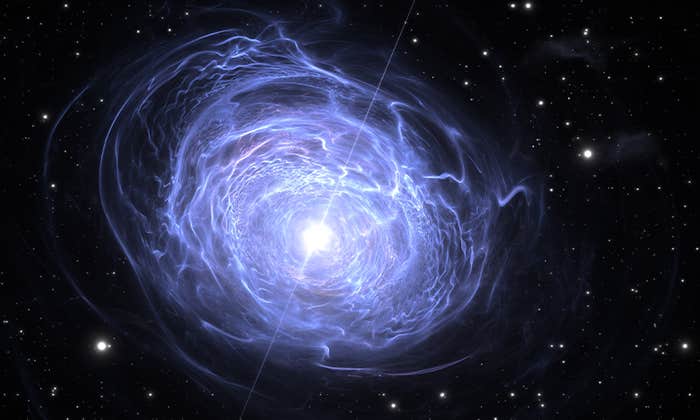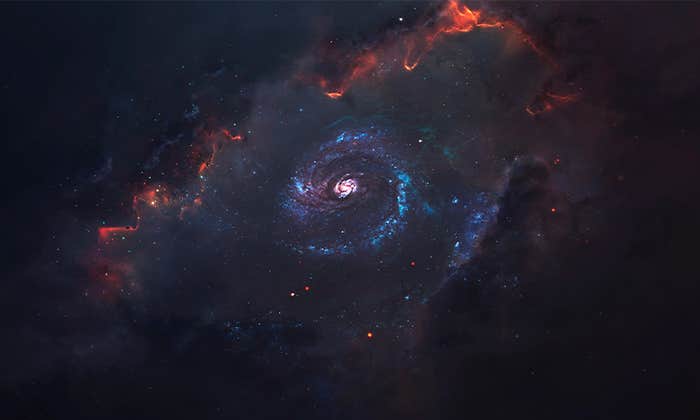Bad ideas die hard, and then sometimes they come back to life. One such bad idea is the so-called design argument that goes something like this: “Behold the human eye: It is perfectly adapted to seeing the things we need to see, like predators or potential mates. It looks almost like the eye was designed by some master craftsman. In fact, the most reasonable conclusion is that it was designed, and therefore that there is a Designer, whom we might as well call God.”
It wasn’t always obvious that this argument is bad. Back in the days before Darwin discovered evolution we didn’t have a good scientific explanation for the adaptations of biological species. And for lack of a better explanation, why not God?
Fast forward to the 1970s. Nobody in the biological sciences had taken seriously for well over a century the idea that biological adaptations need a divine explanation. But then something surprising happened when the design argument emerged from the ashes in one of the most exciting new scientific disciplines of the 20th century—physical cosmology.
The fine-tuning argument rests on an interesting discovery of physical cosmology that the odds were strongly stacked against life.
This new fine-tuning design argument claims the imprimatur of physics, and is presented in quantitatively precise terms: among the set of all possible universes, the percentage that could sustain life is so small that the human mind cannot imagine it. By all rights, our universe shouldn’t have existed. What wonder that our universe has given birth to life, especially intelligent life. It seems the only explanation for this wildly improbable outcome is the supposition that there is a Designer.
But could it really be that physics points to God’s existence?
Let me put my cards on the table. I believe that our universe is the creation of an omnipotent being. And I agree with John Glenn who said, “Looking at the Earth from this vantage point, looking at this kind of creation and to not believe in God, to me, is impossible.” But the attempt to parlay this sense of wonder into a scientific proof is fraught with danger. And the fine-tuning argument is no exception.
There’s a deep problem lurking in the background of the fine-tuning argument, which rests on two factual claims. One is that a life-conducive universe exists. And the second is that this kind of universe is improbable.* It’s the second fact that is responsible for the resurrection of the design argument, and fine-tuning advocates are so focused on using it as a premise that they’ve failed to see that it needs explanation. That is, why is it the case that it’s unlikely for an arbitrary universe to be conducive to life? It’s not plausible to write it off as a brute necessity, because it’s not obvious that this had to be the case, nor could it have been discovered by pure reason alone. The reason to believe the second fact is because it is a prediction of our best physical theory.
But even if we do find the much-needed explanation, it will be disastrous for the fine-tuning argument, because it would disconfirm God’s existence. After all, a benevolent God would want to create the physical laws so that life-conducive universes would be overwhelmingly likely.
The attempt to parlay a sense of wonder into a scientific proof is fraught with danger.
An analogy here might be apt. Suppose that you’re captured by an alien race whose intentions are unclear, and they make you play Russian roulette. Then suppose that you win, and survive the game. If you are convinced by the fine-tuning argument, then you might be tempted to conclude that your captors wanted you to live.
But imagine that you discover the revolver had five of six chambers loaded, and you just happened to pull the trigger on the one empty chamber. The discovery of this second fact doesn’t confirm the benevolence of your captors. It disconfirms it. The most rational conclusion is that your captors were hostile, but you got lucky.
Similarly, the fine-tuning argument rests on an interesting discovery of physical cosmology that the odds were strongly stacked against life. But if God exists, then the odds didn’t have to be stacked this way. These bad odds could themselves be taken as evidence against the existence of God.
I myself don’t think that the extreme improbability of the existence of life disproves the existence of God. But that’s because I don’t think we understand God well enough to make firm predictions one way or the other about what kind of universe God would create. The problem I’ve raised is only an issue for theists who think that they do understand God to a sufficient degree.
One could go too far with this sort of skepticism. Surely the so-called fine-tuning evidence is proof of something. But the fact that our current cosmological theory can’t explain it tells us that we have more work to do. When our best science predicts a lifeless universe, and this fails to obtain, what should we do? We could say, “a miracle has occurred!” But that would be intellectually lazy. We need a theory that will make accurate predictions and integrate with other successful physical theories. The fine-tuning argument falls short because it assumes that our current cosmological theory is correct, as long as we invoke a non-scientific principle, God. I advocate a more radical and scientific reading of the fine-tuning data. It’s not a brute fact or a true premise in a theological argument. Rather it’s evidence that we need a new and revolutionary cosmological theory.
* There is some question about whether physical cosmology states this second fact, but for the remainder of our discussion let’s assume it does.
Lead Image: Prague Astronomical Clock animated by Willy Leenders Credit: Wikimedia Commons.

























